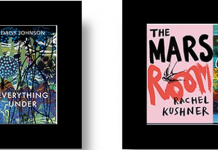A famous brain researcher recommends a dietary program to sharpen the mind and maintain your brain’s GPS in prime condition.
It’s night. You just walked out of the movie theater and are wondering where you parked your car. You walk through the parking lot looking for it, but it’s useless.
The other day you forgot a meeting at work.
What is going on with you?
According to one study, millennials forget things more often than the generations before them. Some researchers claim that stress is the cause, but others, like psychiatrist Daniel Amen and author of the book Memory Rescue, Supercharge Your Brain, believe that these events are signals your brain is sending to let you know that your memory is beginning to fade so that you have time to fix the problem before it becomes worse.
Dr. Amen recommends a dietary regimen in his book that he developed after working with clients throughout the United States including Washington, California, Atlanta, New York and Chicago. His program consists of a list of ‘weapons’, ranging from nutrition to breathing exercises and increased physical activity, that fight against the development of dementia. As he highlights, the dietary program is especially important and can be followed by anyone looking to proactively protect their memory.
So then what are the basic ingredients and how do you implement the program?
The Right Moves
To understand everything this psychiatrist recommends all we have to do is… take a tour of the brain. One of the first places dementia hits is the parietal lobes, which are linked to spatial recognition and the sense of direction. The amygdala is responsible for finding the correct words when we speak, but also for reacting logically to what is happening around us. The hippocampus functions much like a hard drive since this is where we store information. On the other side, in the temporal lobe, we store data for large periods of time because it functions as our long-term memory.
It soon becomes clear that there isn’t just one part of the brain that is responsible for memory since the elements that make it up (for example, images and words) are linked. In order to support this complex system, Dr. Amen developed a program called Bright Minds consisting of measures to beat risk factors that endanger the brain: high blood pressure, inflammation, genetics, toxins, lack of neuro-hormones, lack of sleep, diabetes and immune system disorders.
The most important steps you can take according to Dr. Amen include memory games, more exercise (for better blood circulation), healthier nutrition (to prevent high blood pressure, obesity, diabetes and to detox your body) and sufficient sleep.
Nutrition gets its own chapter attesting both to its significance in the program and to newer evidence that is now available. For example, a new Italian study links depression with Alzheimer’s Disease, so Dr. Amen recommends foods that boost dopamine and serotonin production. Most of all though he recommends abiding by the following principles.
The importance of fasting: Those of us that consume more calories than our body needs are two to three times more likely to develop Alzheimer’s. One possible cause of memory loss is the overproduction of amyloid beta and Tau proteins that destroy the brain’s cellular networks. The body eradicates these proteins through the process of cellular autophagy, a process by which cells clean toxins from the brain. This process can be stimulated by fasting for 12-16 hours. As Dr. Amen explains, this means that if we have dinner at 7 pm and do not eat anything else until 11am, we give our body ample time to remove useless and toxic substances. Fasting in this way can help memory retention, mood, weight loss and inflammation. But how safe is it? Nutrition experts support that intermittent fasting is harmless unless you have diabetes or gastrointestinal issues.
The research: Olive oil helps the cellular autophagy process and reduces the development of Alzheimer’s.
Prefer clean foods:
They decrease inflammation and reduce the risk of developing Alzheimer’s. The least toxic foods you can consume are avocados, pineapples, cabbage, onions, peas, papaya, asparagus, mango, eggplant, kiwi, cauliflower, and grapefruit.
Choose good protein:
The best sources are turkey, chicken, and pork derived from organic farms. They maintain your metabolism at good levels and regulate glucose levels thus wiping out risk factors (such as diabetes). Keep in mind that when elevated levels of sugars hit your veins and arteries they are certain to negatively impact your memory in future.
Say ‘yes’ to good fat:
A study conducted by the Mayo Clinic reveals that the risk of developing Alzheimer’s is 42% less for those who follow a diet based on good fat and 400% more for those who prefer carbs and sugar. Add good fat to your shopping list: sardines, avocados, coconut, linseed oil, nuts, olives, olive oil, seafood and sesame oil.
Bet on fruit, vegetables, and herbs:
They reduce inflammation which contributes to the development of Alzheimer’s, heart disease and other illnesses. The highest anti-inflammatory properties are found in cloves, oregano, rosemary, thyme, cinnamon, turmeric, sage, acai berries, and cocoa.
Beat Depression
According to research, depression increases the risk of Alzheimer’s. The foods listed below not only fight against depression but also put you in a good mood. Win-win.
Herbs: Saffron, turmeric, cinnamon, mint
Foods to increase dopamine (a neurotransmitter that helps control the brain’s reward and pleasure centers): Turmeric, green tea, lentils, fish, chicken, turkey, eggs, beef, nuts, spinach
Foods for more serotonin (the key to mood regulation and pain perception): Eggs, turkey, seafood, chickpeas, sweet potatoes, quinoa, dark chocolate
Foods with the amino acid GABA (its main role is reducing neuronal excitability throughout the nervous system): Broccoli, almonds, walnuts, lentils, brown rice, bananas, oranges, spinach
Foods containing choline (this molecule is used for its cognitive boosting properties – it turns into acetylcholine, the learning neurotransmitter): Eggs, shrimp, chicken, turkey, beef, brussel sprouts
For more great nutrition information visit whatdetox.


















